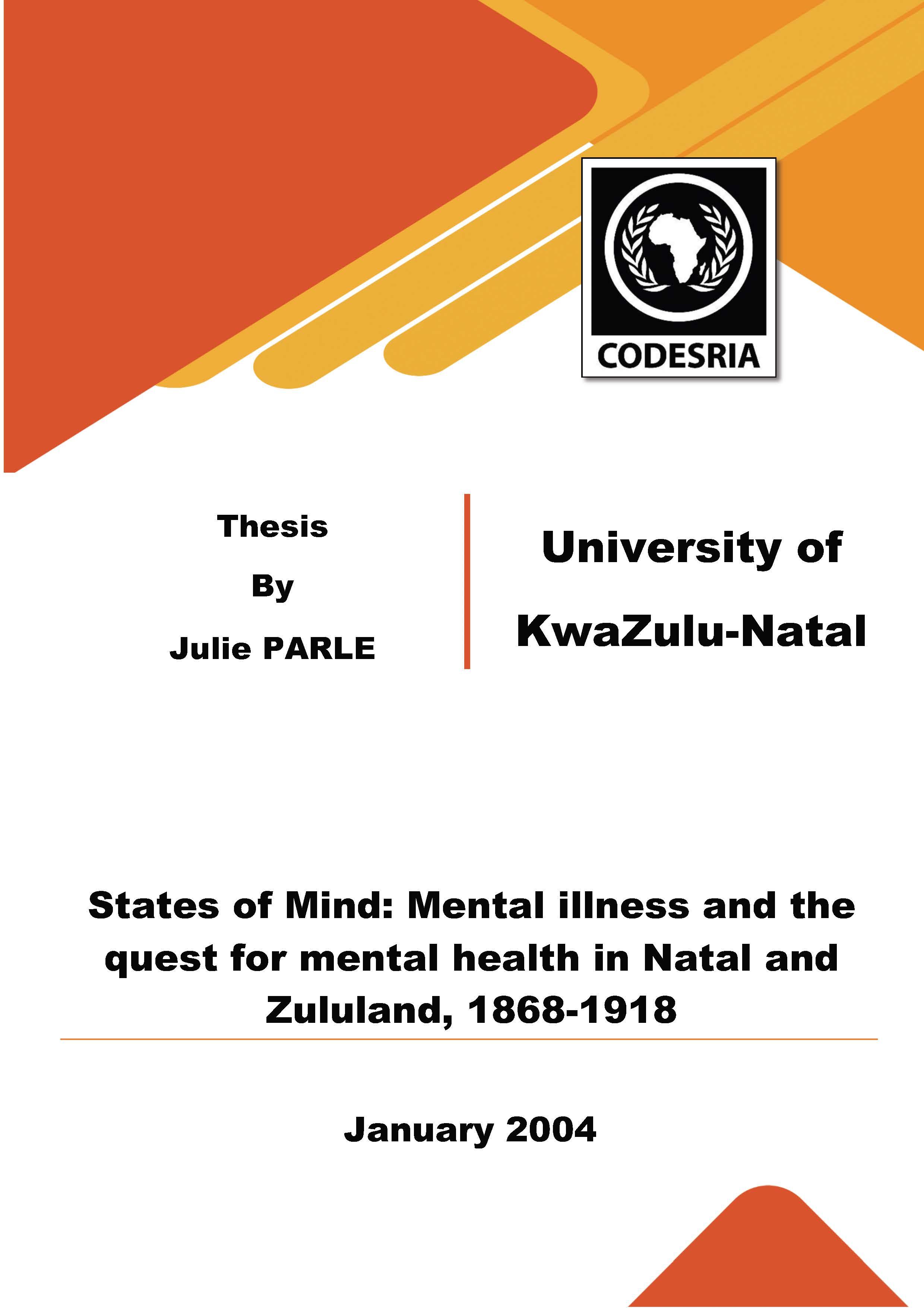States of Mind: Mental illness and the quest for mental health in Natal and Zululand, 1868-1918
Keywords:
Mind, Mental illness, health, Natal, ZululandSynopsis
ln KwaZulu-Natal, South Africa, many of those who search for salace from mental illness draw on one or more of the three vigorous therapeutic traditions of healing to which the region is heir. Western psychiatry and its formai institutions have a long
history in this region: in 1868, the Colony ofNatal passed southern Africa's first 'lunacy legislation'; and in 1880, the Natal Government Asylum was opened on the Town Hill, Pietermaritzburg. Although founded on the precepts of nineteenth century liberalism, by 1910, the Pietermaritzburg Mental Hospital (as it was now known) increasingly reflected a national concern with a racialised 'mental science' and Natal psychiatry became somewhat marginalized within a broader network of national asylum administration. During World War 1, too, the white citizens of Pietermaritzburg sought to have future expansion of the asylum halted, and its inmates hidden from public view. Although the story of Western psychiatry in Natal and Zululand is important for any history of mental illness in South Africa, in the nineteenth and early twentieth centuries, colonial psychiatry had relatively limited significance for the majority of people. Since the nineteenth century, African understandings of and treatments for illness have proved especially resilient, interacting with and at times adopting- and adapting - elements of Western biomedicine, as well aspects of healing strategies whose origins lie in Indian concepts of health and medicine first brought with indentured workers from the 1860s. For whites, as well as for Africans and Indians, committal to the asylum came, most typically, at the end of a lengthy quest to find a cure for mental illness. Throughout the nineteenth and early twentieth centuries, other sectors of healing proved to be remarkably flexible, offering new explanations for apparently new forms of illness - including insanity - that accompanied the political, economic and social upheavals of the time, as well as producing new therapies, strategies, and specialists to meet them. It is this variety of responses to mental illness, and ways of attempting to negotiate a path to a state of mind that might be termed 'mental health', that this dissertation traces.
Downloads
References
Minde, M. 'History of Mental Health Services in South Africa, Part XI: Services for Alcoh6lics', in South African Medical Journal, 49 (December 1975).
Minios, G. History of Suicide: Voluntary Death in Western Culture, Translated by L. G. Cochrane (Baltimore: The Johns Hopkins University Press, 1999).
Morrell, R. From Boys to Men: Settler Masculinity in Colonial Natal, 1880-1920 (Pretoria: UNISA Press, 2001).
Mullings, L. Therapy, ldeology, and Social Change: Mental Health in Urban Ghana (Berkeley and Los Angeles: University ofCalifornia Press, 1984). Ng, B-H. 'Hysteria: A Cross-Cultural Comparison ofits Origins and History', History of Psychiatry, x (1999).
Ngubane, H. Body and Mindin Zulu Medicine: An Ethnography of Health and Disease in Nyuswa-Zulu Thought and Practice (London: Academic Press, 1977).






